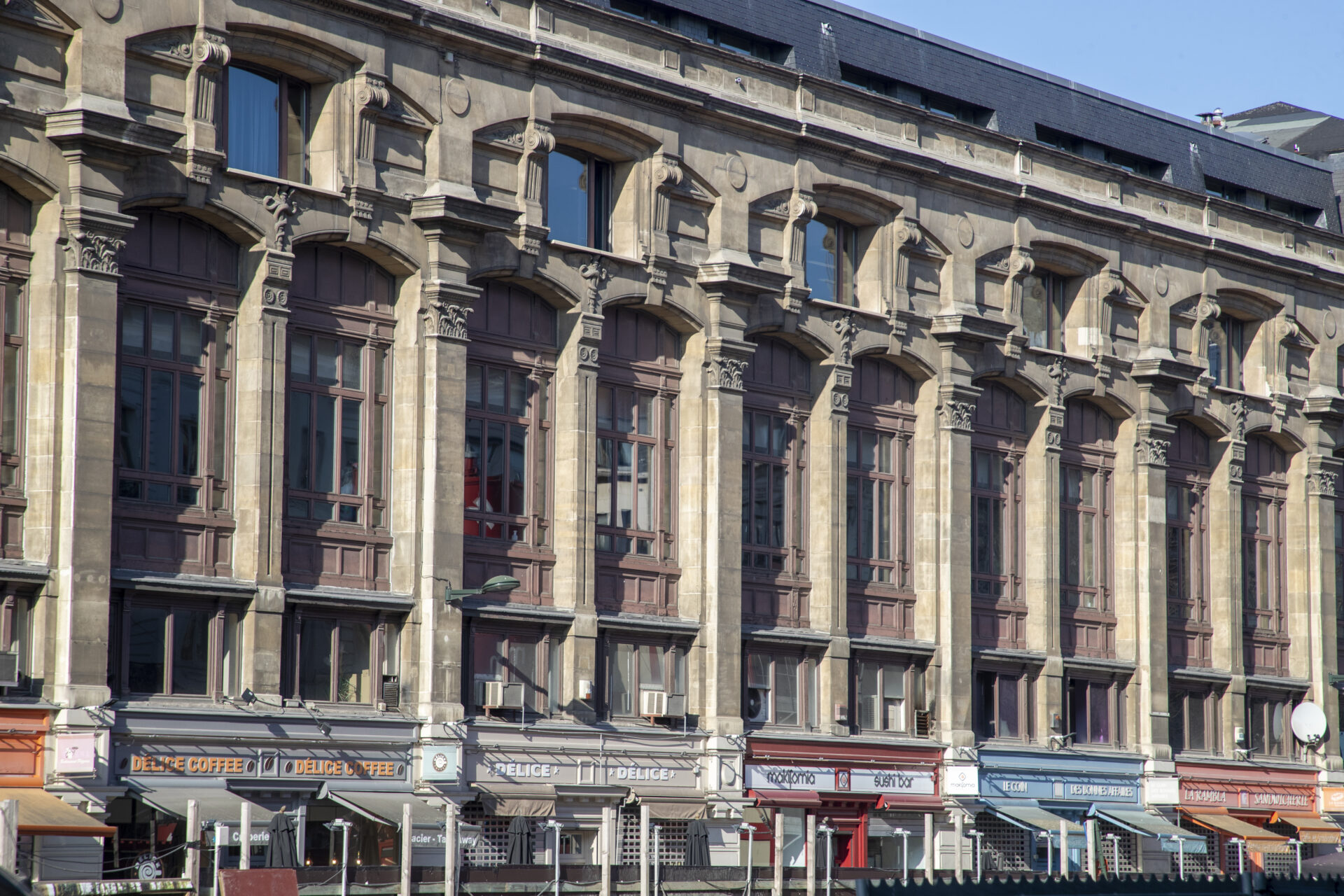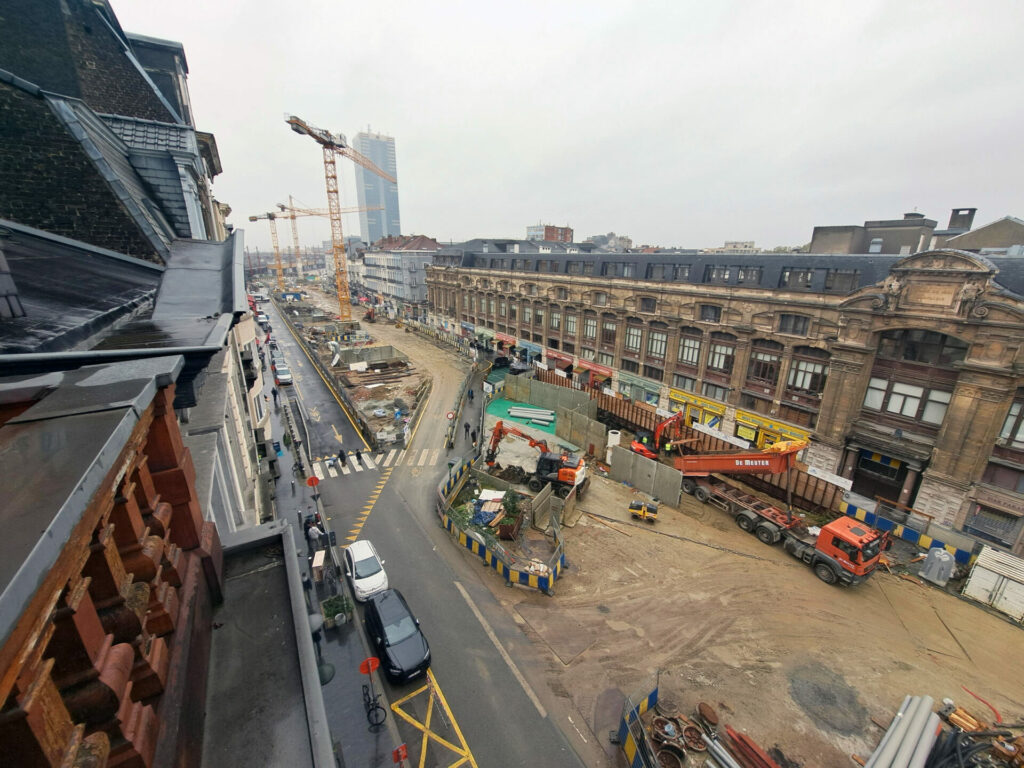Brussels' embattled Palais du Midi has been at the centre of a longstanding dispute over the construction of the new Metro 3 line, which is due to run underneath it. The demolition of its inside seemed set in stone, but a court appeal could put a spanner in the works.
The iconic building Palais du Midi, wedged between Brussels-Midi station and Stalingrad-Lemonnier, is located on what is now a construction site for metro line 3, connecting Evere in the north of Brussels with Forest. Faced with technical problems, the region decided the building's interior must be dismantled, leaving only its facades, to ensure the metro station Toots Thielemans can be connected to the Anneessens station.
The Brussels-Capital Region Parliament agreed to an emergency ordinance that shortens the procedure to go ahead with partial demolition from 480 days to 290 days in late September 2023. This would include skipping some steps and shortening deadlines.

Palais du Midi, in Brussels. Credit: Belga / Nicolas Maeterlinck
An opinion from the Council of State at the time made it clear even then that the ordinance was vulnerable to appeals. One is now being lodged by Inter-Environnement Bruxelles (IEB) and the Atelier de Recherche et d'Action Urbaines (ARAU). They want the Constitutional Court to overturn the order specifically designed to hasten the demolition of the building.
"Home to dozens of shops, sports clubs and a high school, the Palais du Midi is a social heritage site threatened by the Metro 3 project," the groups noted in a statement. They added that the building has a high architectural value, recently recognised by Europa Nostra as one of the most endangered protected buildings in Europe.
"Through the appeal, we are seeking to protect the architectural heritage of the Palais du Midi and preserve the many uses to which it has been put for decades," they concluded.
Not in public interest
It is precisely these shorter procedures which are being disputed by city associations in their appeal. They criticised the fact that the fast-tracking procedure is not subject to an environmental impact study, unlike the decree for the dismantling itself.
They argued that shortening the deadlines granted to the consulted bodies during the application process would restrict the right to a healthy environment.
Such a curtailment is constitutional but only if it can be motivated by reasons of public interest. Public transport operator STIB argued last year that dismantling the interior represents the best option for residents and was the most positively received option amongst neighbourhood residents.
However, the city associations said the reasons cited by the region are "technical, budgetary and temporal complications, not reasons of public interest".
Complete halt to project
The cabinet of State Secretary for Town Planning Ans Persoons (vooruit.brussels), who has repeatedly said it is in everyone's interest to move forward as quickly as possible, told Bruzz that the ordinance speeds up a few steps, but still offers sufficient guarantees of public participation.
Her cabinet added that an environmental impact study will be carried out and the deadlines of the public enquiry and the consultation committee will be fully respected.
Meanwhile, Arau has once again called for the complete abandonment of the Metro 3 project as the "setbacks", such as "exorbitant costs" (the estimated cost has doubled to €4.7 billion), and the fact the works are threatening the survival of the neighbourhoods affected.
It stated that alternatives that can be implemented more quickly, offering more direct links, better frequency and more capacity than at present should be seriously considered.

